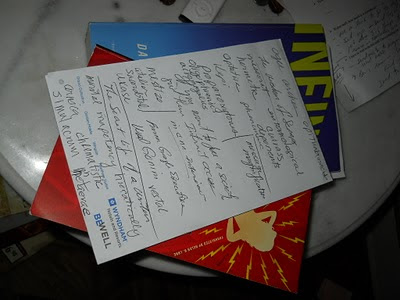Douglas Arvidson is a past winner of the WICE/Paris Transcontinental International Short Story competition. His short fiction has been published in Paris, Prague, and in literary magazines in the United States and he was recently invited to be a staff writer for the Prague Revue, a cutting-edge, online literary journal (http://bit.ly/1mMT6ZC). The novels in his fantasy series, The Eye of the Eye of Stallion, include The Face in Amber, The Mirrors of Castaway Time, and A Drop of Wizard's Blood. His new novel, Brothers of the Fire Star, was selected as a finalist in the ForeWord Reviews 2012 Book of the Year national awards and as a finalist in three categories in the 2013 New Mexico-Arizona Book Awards: Action Adventure Fiction, Historical Fiction, and Young Adult Fiction. It has become part of the pantheon of Pacific literature and is now included in school literature programs. Brothers of the Fire Star is an adventure story set in the Pacific during World War II and concerns two boys of different races and cultures who escape the island of Guam in a small sailboat when the Japanese army invades. They must then struggle to survive as they master the secrets of the ancient Pacific navigators. Appropriate for young adults as well as adult readers, Brothers of the Fire Star is available on Barnes & Noble, Amazon.com (http://amzn.to/1j3axVk) and Crossquarter.com. Visit the author's website: douglasarvidson.com
Friday, February 18, 2011
Words, Big Words, Little Words, Funky Words: Writers Live and Die by Them and, for Some, Words are Part of the Infinite Jest
The limits of my language are the limits of my mind. All I know is what I have words for."
Ludwig Wittgenstein
When I wear high heels I have a great vocabulary and I speak in paragraphs. I'm more eloquent. I plan to wear them more often. Meg Ryan
I'm a writer, so it follows that I love words. But, for cryin' out loud, give me a break already. I mean, mesocrat? Ukase? Apocope? Rutilant?
These are just a few of the rare lexicological gems I've been running across in my reading lately. If I were tucking into a text on some odd philosophical branch of inquisition, I could understand not knowing the vocabulary. But these book are novels, supposedly for consumption by the general reading public. Specifically, Infinite Jest by David Foster Wallace (more on this five pound, literary version of a joy-filled hell in a later blog), and Aunt Julia and the Script Writer by the recent Nobel prize winner, the Peruvian, Mario Vargas Llosa. (And this is a translation, apparently done by a person who, when he or she is translating, changes little Spanish words into big English words, and a brilliant writer's original prose into American cliches.)
So what's the problem then? I ought to be glad for the opportunity to improve my knowledge base, right? However, the reading process, in the particular case of this reader and these writers, involves reading a few paragraphs and then stumbling and fumbling on an unfamiliar word, writing it down on a scrap of paper (see photo, above), going to my Droid, opening the dictionary app, and looking it up. In the case of Wallace, he sometimes uses words that my Droid dictionary could not find because of one misplaced letter and I suspect that the infinitely depressed Wallace, rest his pitiful soul, made up these words, or misspelled them as part of the endless jest.
In any event, stopping to look words up every few minute adds hours to the time it takes to get from page 1 to the THE END of the stack of books I have at me bedside. Here's another one, for example, from Infinite Jest: majisculed. Now, my Droid tells me that majisculed simply means "capitalized" as in capitalizing a word, so unless you are indeed sharing a practical joke with your reader, why would a writer use it instead of "capitalized?" Is it foolish for me to question the motives of a purported literary genius like Wallace? Of course it is.
Now, I've told you the meaning of majiscule but your on your own with rutilant, ukase, apocope, and mesocrat. Hey, I can't keep spoon feeding you this stuff or you'll grow up with a stunted drive to learn.
Note: HA! I just hit the spell check feature on this blog and it couldn't fine these words either. Good luck.
Subscribe to:
Post Comments (Atom)

No comments:
Post a Comment